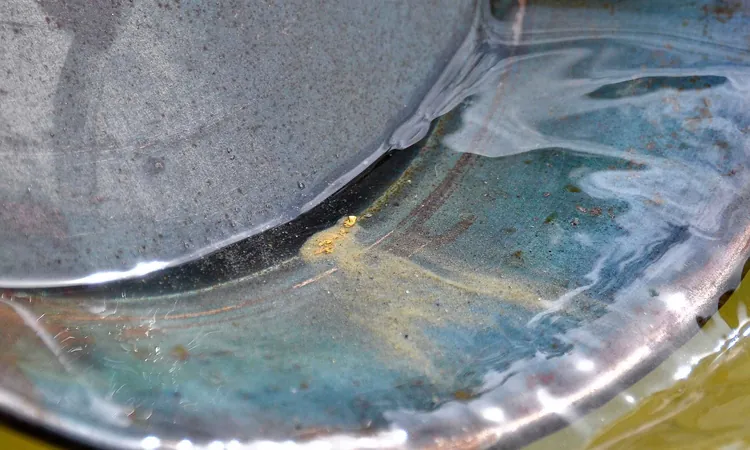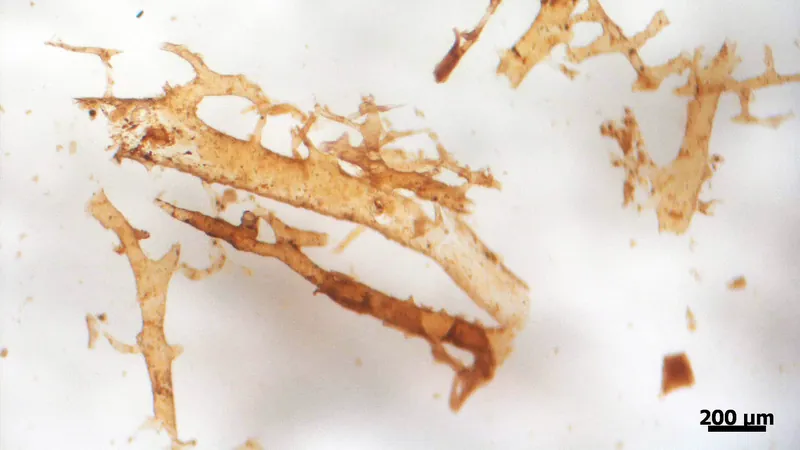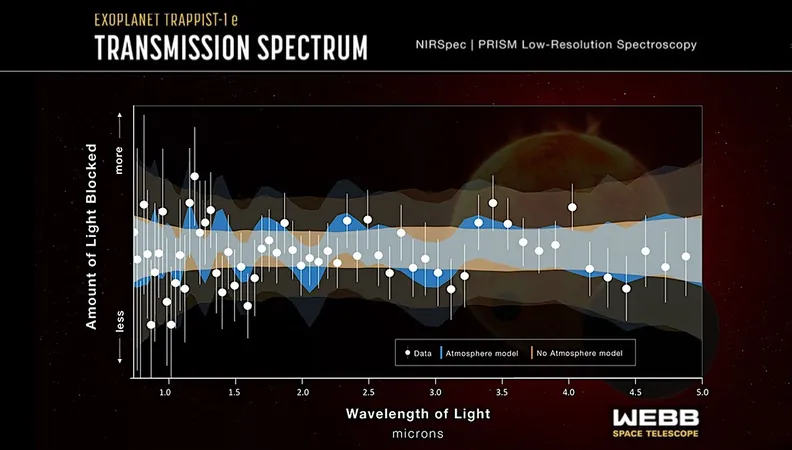
The Hidden Gold in Our Oceans: A Treasure That's Nearly Impossible to Mine
2025-09-13
Author: Ming
Gold might be lurking in Earth’s oceans, but don’t get your hopes up for a treasure hunt just yet! While there are traces of this precious metal in seawater, they exist in such minuscule quantities that ordinary methods simply can't extract them.
For over a hundred years, adventurers have fantasized about scooping up riches from the sea, but scientific research tells a starkly different story. Kelly Falkner and her team have laid down the groundwork for understanding what’s really in our oceans, giving us trusted data to work with.
How Does Gold Get into the Ocean?
Gold finds its way into seawater through several channels: rivers, wind-blown dust, and hydrothermal vents on the ocean floor. Once it reaches the sea, the metal binds to other particles and forms diluted complexes with chloride, making it even tougher to nab.
Shocking Concentrations of Gold in Seawater!
Studies reveal that typical concentrations of dissolved gold hover around 50 to 150 femtomoles per liter in the Atlantic and Northeast Pacific. To put this into perspective, that’s equivalent to mere parts per trillion (ppt)! Collecting seawater samples for accurate measurement requires ultra-clean techniques to avoid contamination.
The Challenge of Extraction
At current open ocean levels, each liter of seawater contains just a few trillionths of a gram of gold. The widely referenced estimates suggest about one gram of gold exists per 100 million metric tons of seawater— a staggering amount when considering the ocean's vastness but nearly impossible to extract by traditional means.
The Reality of Seafloor Mining
While some undissolved gold rests on the seafloor as part of minerals and crusts, these deposits are located a mile or two below the surface, locked in rock that requires intense extraction methods. Explorers often deploy remotely operated vehicles (ROVs) to gather data from these deep-sea sites, but findings seldom reveal scattered golden nuggets.
Seawater Mining: A Costly Venture?
The economics of extracting gold from seawater are daunting. Current technologies struggle to make extraction feasible for trace elements like gold, despite ongoing research to develop more effective sorbents. Unfortunately, the complexities of handling massive water flows at an economical cost make large-scale operation impractical.
Understanding Ocean Gold: The Next Steps
Researchers continue to investigate the ocean's gold reserves and their cycling through various ecosystems. A recent analysis estimated the ocean holds around 14 million kilograms of dissolved gold, with an average residence time of about 220 years. Most of this gold disperses into the deep ocean instead of settling near its sources.
As the scientific journey progresses, improved data collection methods and technologies will shed light on the elusive dynamics of ocean gold hotspots. For treasure hunters lured by the promise of riches, the harsh reality of dilution and logistical challenges hampers the dream.
This study illuminates the complexity of our oceans' chemistry and details why real treasure remains just out of reach. The findings were published in Earth and Planetary Science Letters— revealing that the true value lies in knowledge, not in fortune.




 Brasil (PT)
Brasil (PT)
 Canada (EN)
Canada (EN)
 Chile (ES)
Chile (ES)
 Česko (CS)
Česko (CS)
 대한민국 (KO)
대한민국 (KO)
 España (ES)
España (ES)
 France (FR)
France (FR)
 Hong Kong (EN)
Hong Kong (EN)
 Italia (IT)
Italia (IT)
 日本 (JA)
日本 (JA)
 Magyarország (HU)
Magyarország (HU)
 Norge (NO)
Norge (NO)
 Polska (PL)
Polska (PL)
 Schweiz (DE)
Schweiz (DE)
 Singapore (EN)
Singapore (EN)
 Sverige (SV)
Sverige (SV)
 Suomi (FI)
Suomi (FI)
 Türkiye (TR)
Türkiye (TR)
 الإمارات العربية المتحدة (AR)
الإمارات العربية المتحدة (AR)